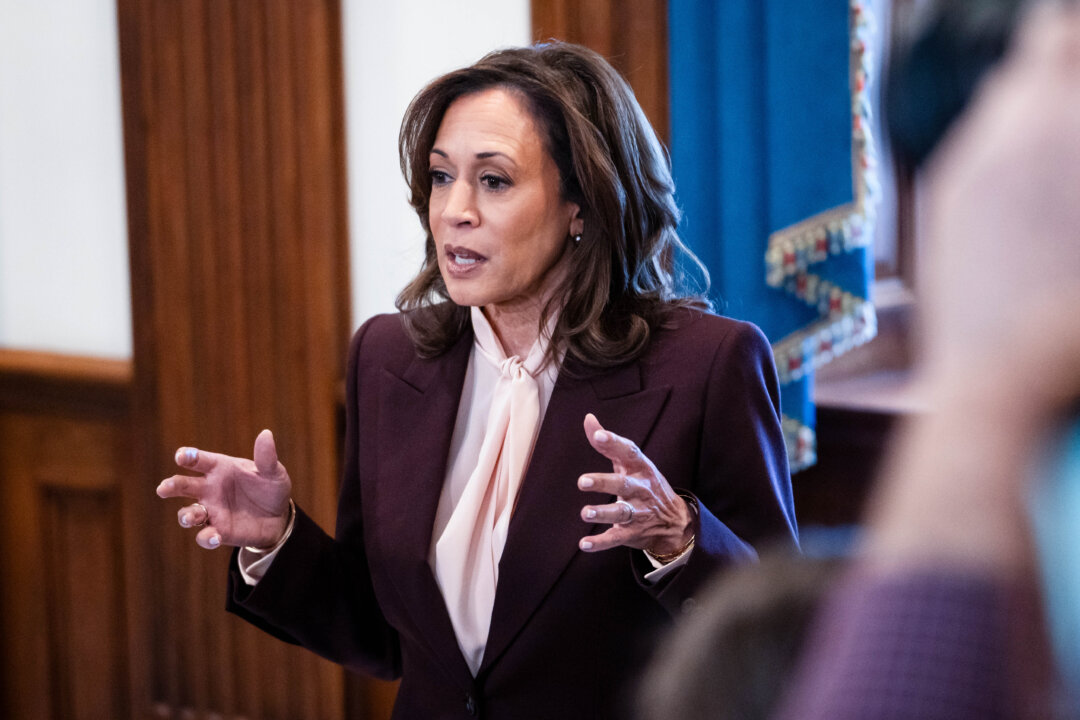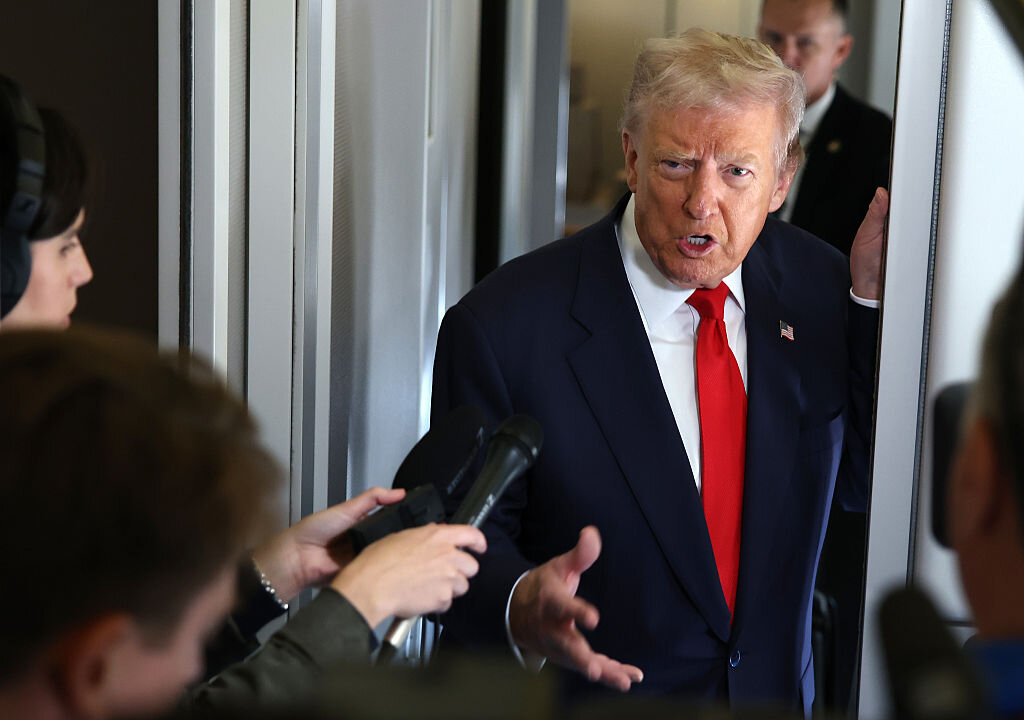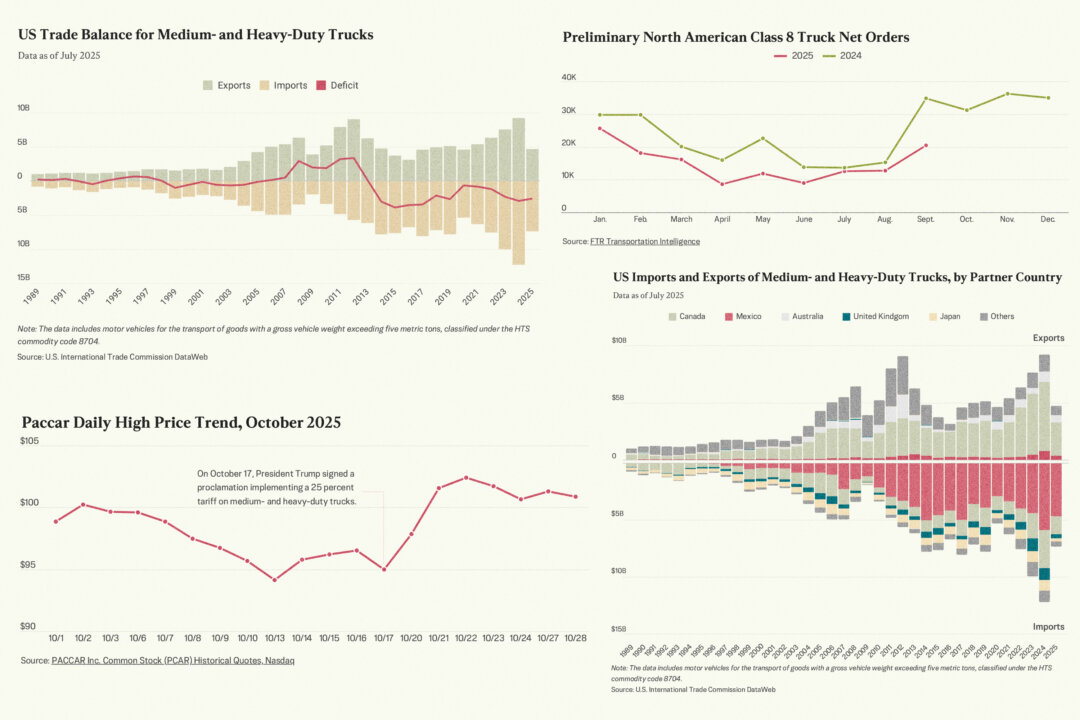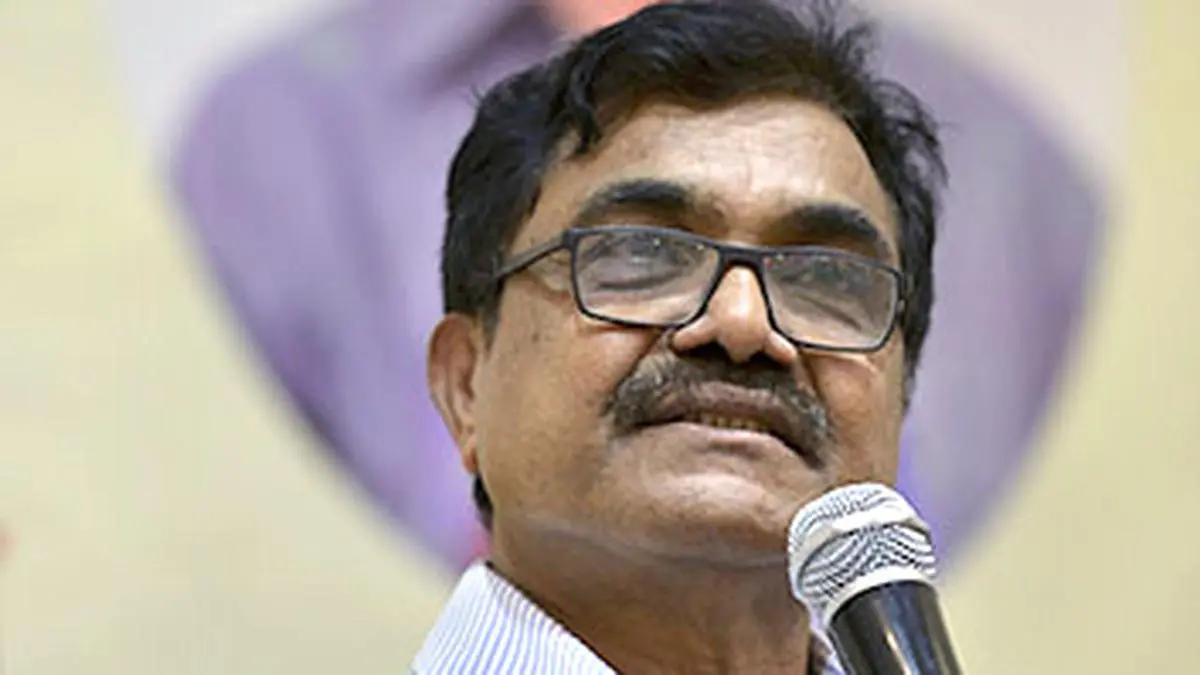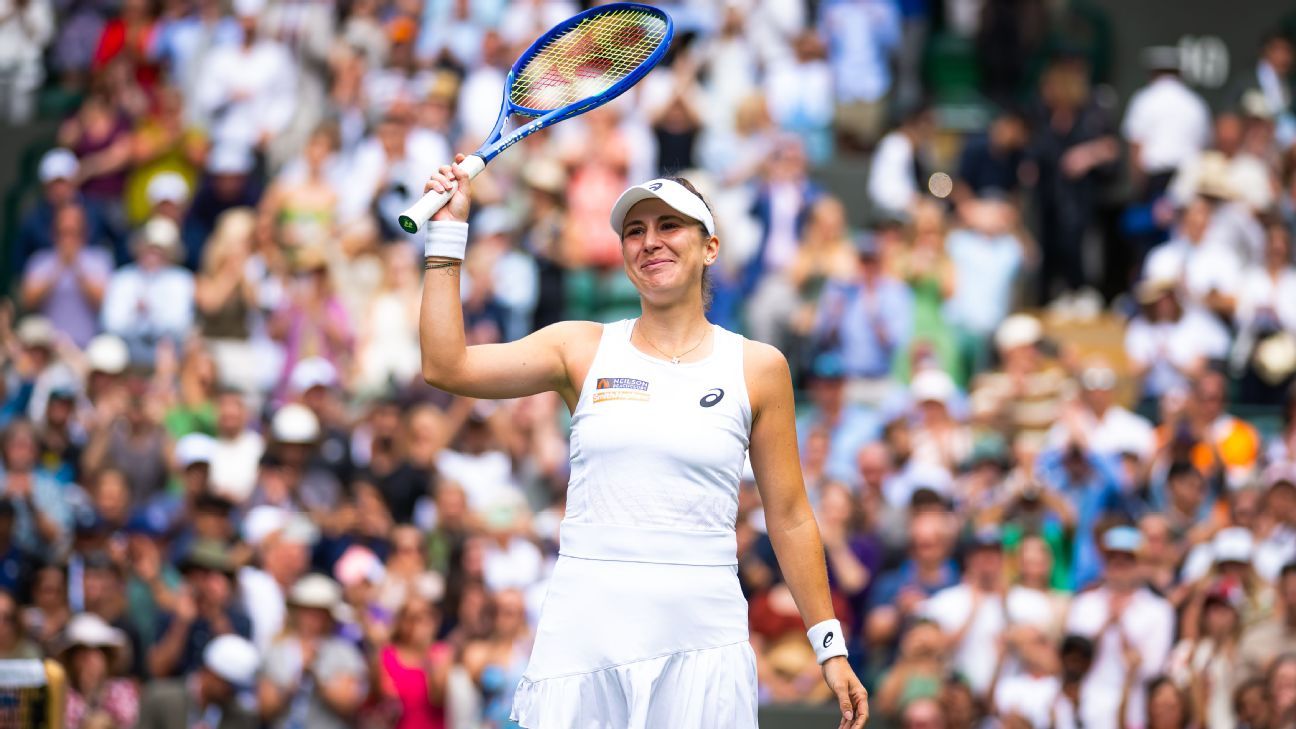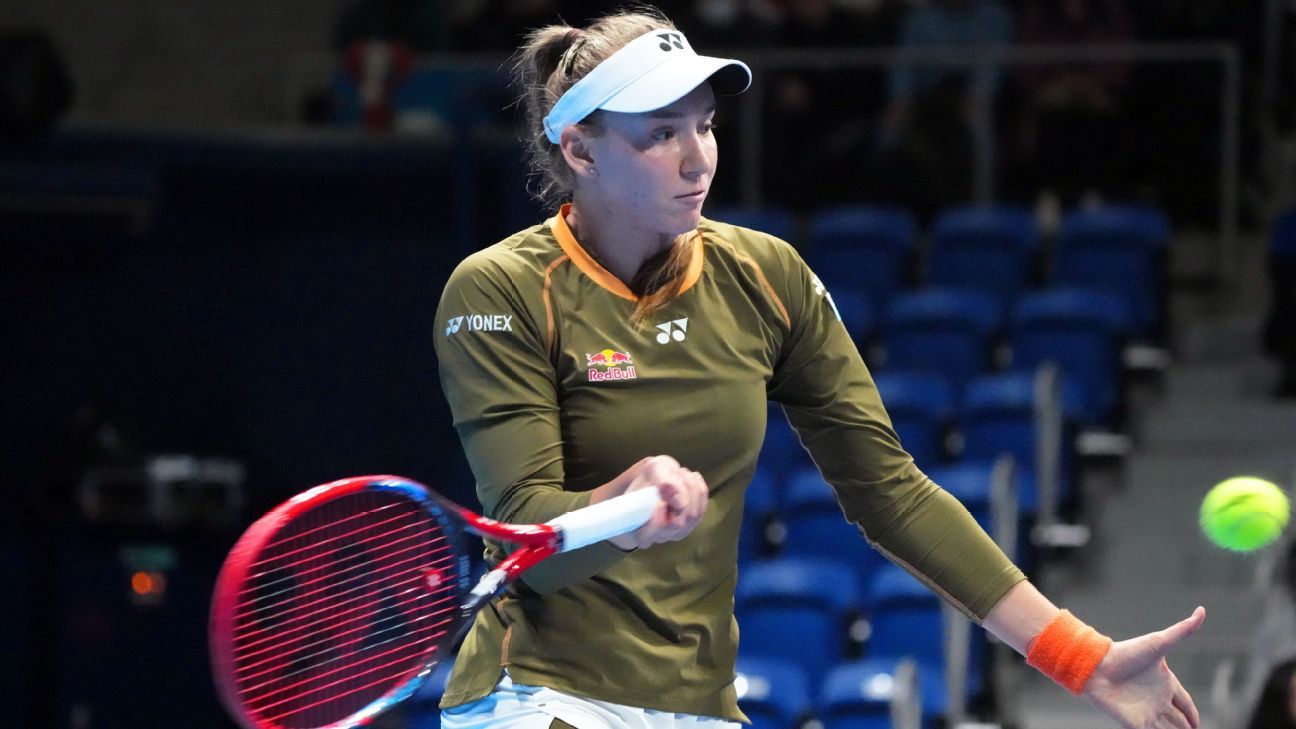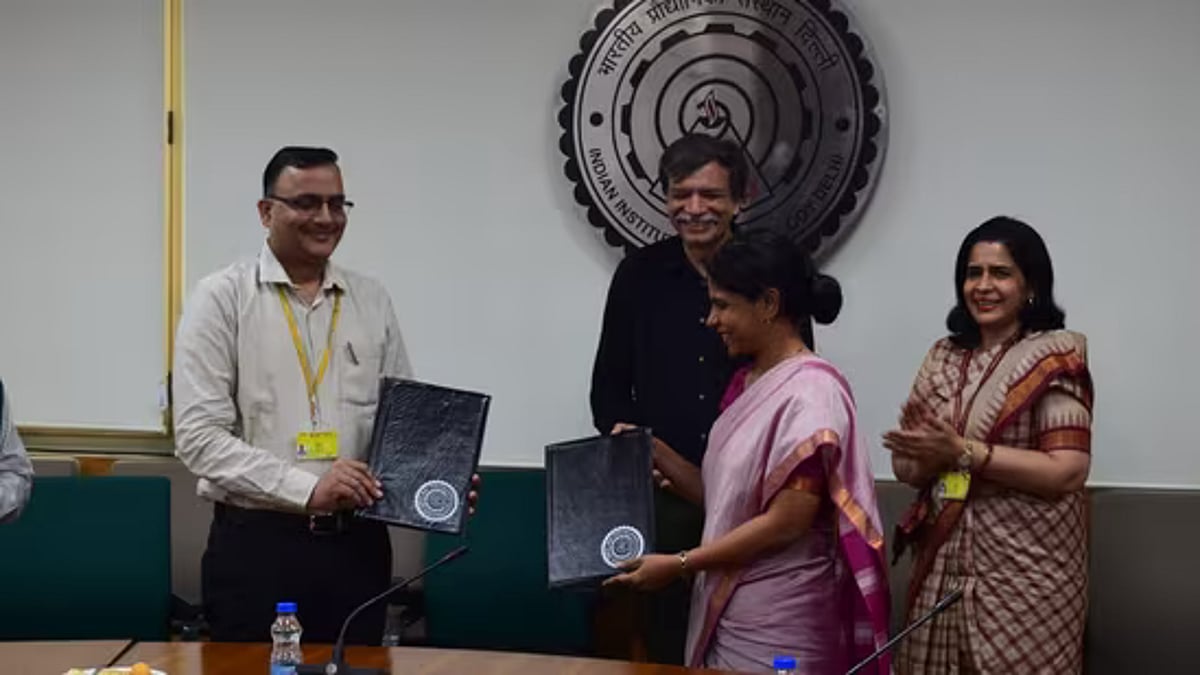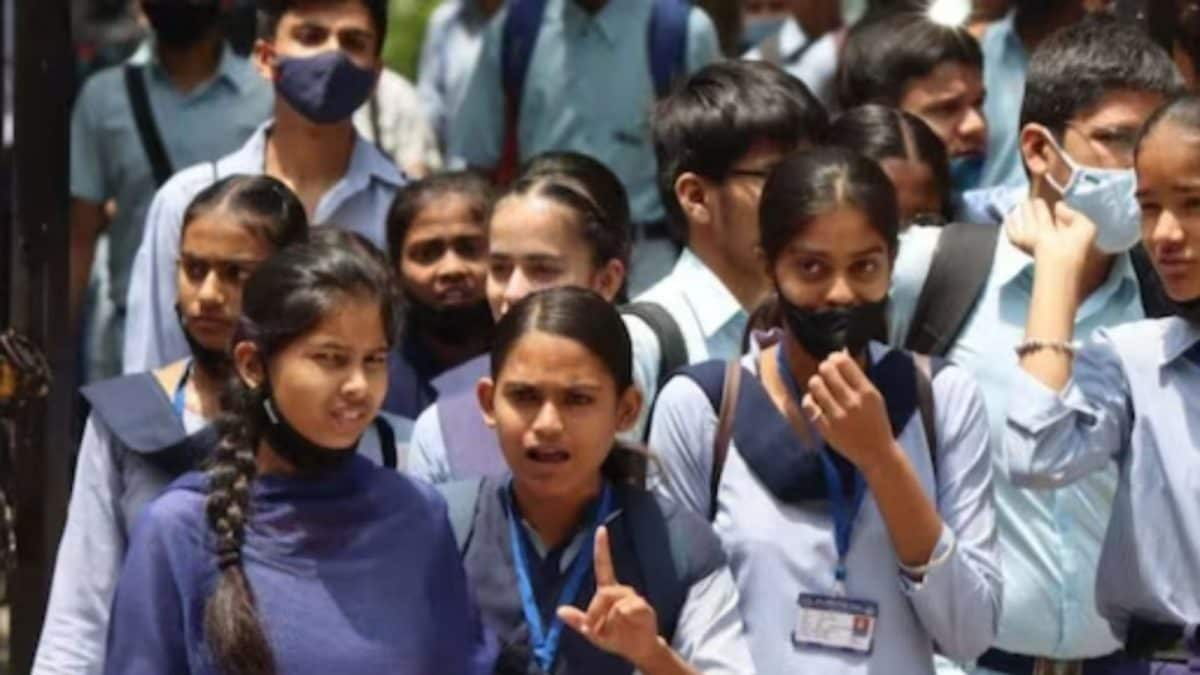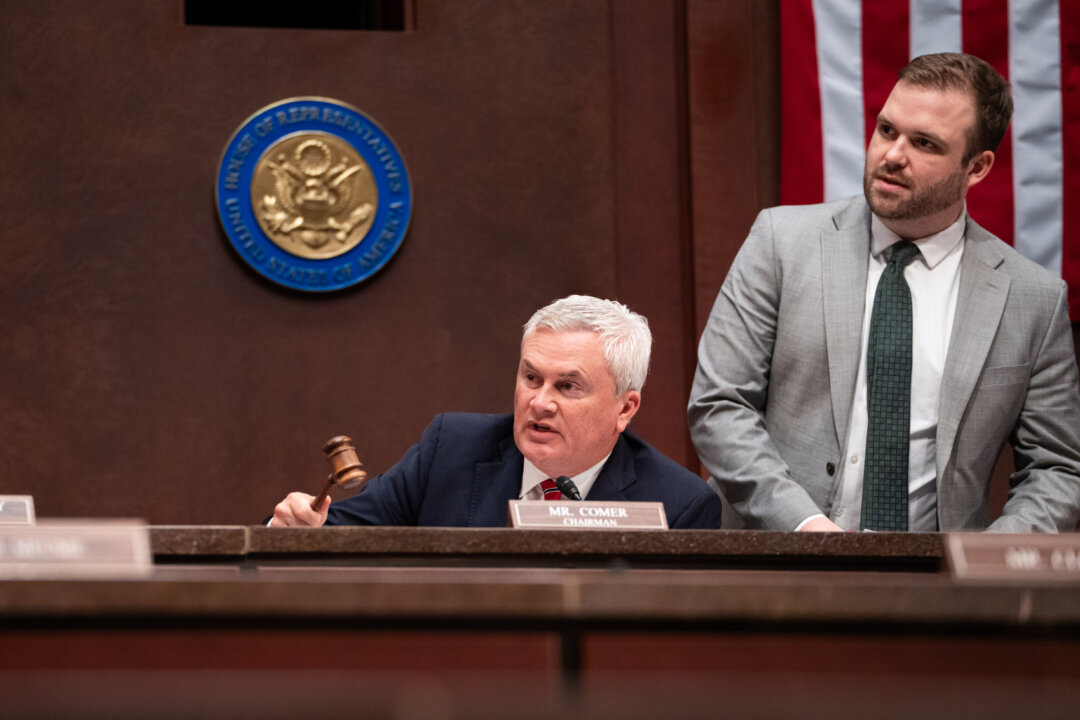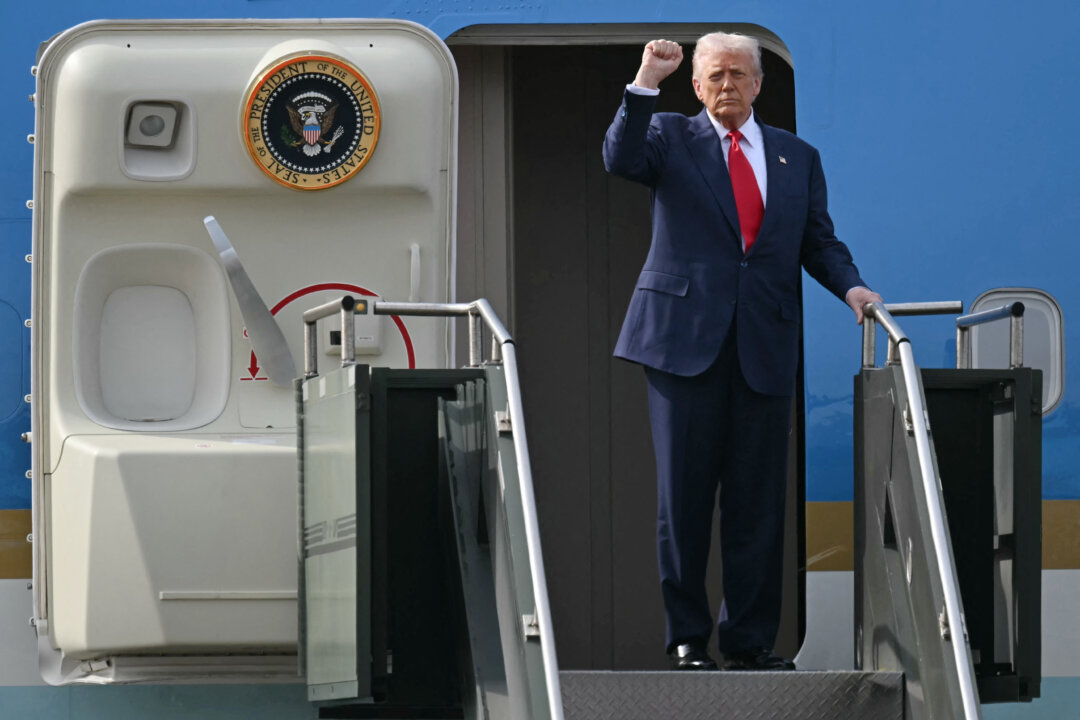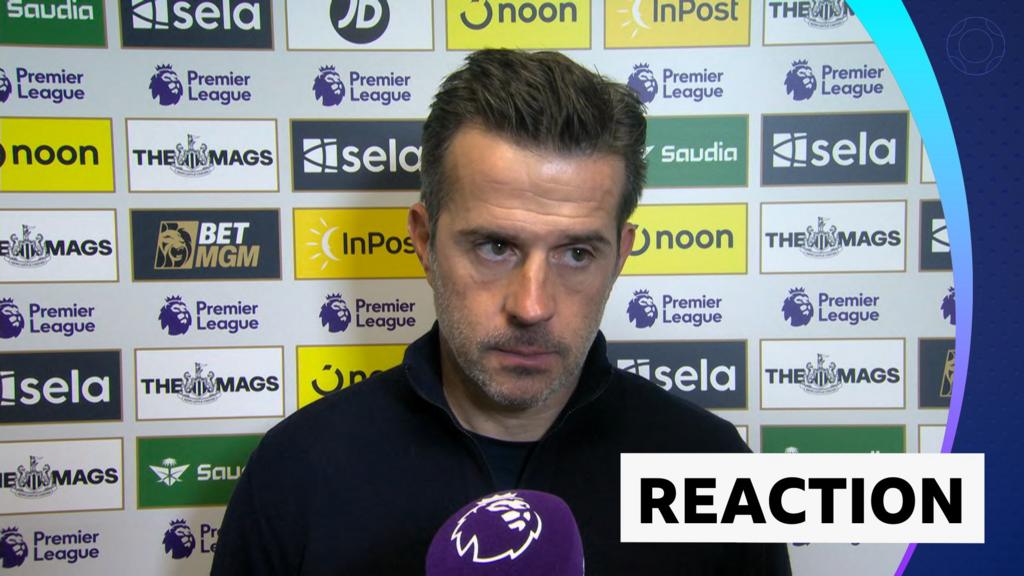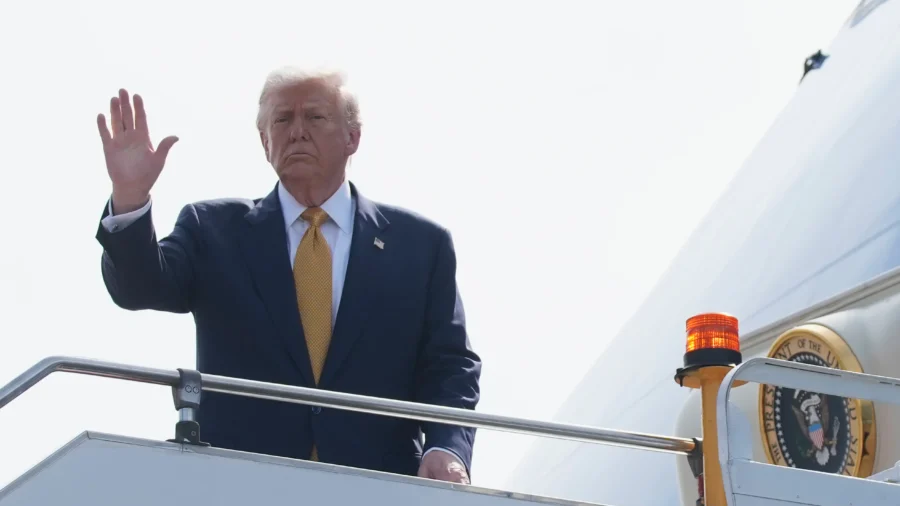I was invited to a conference of Western Conservatives: As a Hindu, here is why I decided not to go
Note: I was invited invited to the ARC Conference (Alliance for Responsible Citizenship Conference). The conference, set to be held in June 2026, aims to unite conservative voices, with Jordan Peterson, Douglas Murray, Vivek Ramaswamy and several others on the advisory board. As one of the first Hindus to be invited to such a conference, I was looking forward to attending it. However, I decided to decline the invitation. Following is a reproduction of my response to the organisers. Dear organisers, At the very outset, I wish to express my gratitude for the invitation. I am acutely aware that at this esteemed gathering, it is rare for Hindu conservatives to be welcomed. Therefore, it would ordinarily be considered a privilege to be among the first Hindus to engage in a broader discussion about the threats faced by my community, common enemies, and a loose coalition to combat civilisational adversaries. I would also like to thank my Jewish friend who recommended my name. He believed (perhaps, still does) that a conservative alliance would be just as incomplete without Hindus as it would be without Jews, since both communities face persecution and religiously motivated hostility. When my Jewish friend and I had a conversation about ARC (The Alliance for Responsible Citizenship) and him recommending my name for an invite, I was somewhat sceptical. A conservative conference in the US, without a doubt, revolves around Christian revival. I, of course, will not criticise that. Every community has the absolute right to work towards its own cultural, religious and civilizational revival. As a Hindu, I was unsure what my role would be at such a conference. My friend reminded me that I have long maintained that Hindus are alone in their civilizational battle. I have long advocated that a community victory of the Hindus is for us alone to cherish, and a loss, a defeat, is for us to bear the burden of. I had also brought up Jordan Peterson’s shameful denigration of the Hindu mother Goddess (Maa Kali) and Douglas Murray’s inaccurate defence of the colonisation of India – what could I possibly have in common with these folks, I had asked. My friend, the eternal optimist, said that the world is no longer a place where persecuted communities can survive without allies and possibly, the ARC Conference could be a great opportunity to find allies against common threats and enemies. I have, in fact, also believed that the best way forward would be reaching a common minimum program of sorts, where, despite our theological differences, Hindus, Christians, and Jews work towards tackling common civilizational threats. What that alliance would look like, however, always eluded me, because the theological differences between Hindus and Christians are insurmountable. When Mr. Ram Madhav spoke at the National Conservatism Conference in July 2024, he went in solidarity. In the Christian conservative fight against the Global Left, Madhav said a billion Indians would be their brothers in arms. “We can be at the forefront”, he had said. Despite the olive branch, he was derided, mocked, humiliated and abused for his Hindu faith by Christian conservatives on X. I knew that if I had attended the ARC Conference, I would have been met with similar derision. But that hardly bothers me. Online hate is something every non-Left commentator is used to – regardless of where they come from. Despite these realities, I thought the ARC Conference could add value for my community because mostly, the racist attacks against Ram Madhav came from what one could dismiss as fringe quarters – random social media accounts who, I thought, had no power to impact policy or serious engagement. That the racist social media chatter did not affect policy or rules of engagement got slightly reinforced when those like Elon Musk, David Sachs and others defended Sriram Krishnan after MAGA enthusiasts unleashed a barrage of racist abuse against him after Donald Trump picked him as the Senior White House Policy Advisor on Artificial Intelligence (AI). It was then that I thought maybe I was being too much of a pessimist. Perhaps a common, limited understanding could be reached, and my community could benefit from such an alliance. Even in the face of increasing racist attacks and comments, I believed that this conference could allow me to address the bias. That pushback or even some sign of disapproval during the Sriram Krishnan saga was completely absent during the recent flurry of anti-India and anti-Hindu comments after Donald Trump’s policies sparked a debate on H1B visas. In fact, the intellectual leadership of the MAGA movement or the anti-woke movement seemed either in agreement through their silence or too scared to voice their dissent. As someone who has spent the better part of her life advocating for Hindu rights and documenting religiously motivated hate crimes against Hindus, I could not, however, overlook the Hinduph
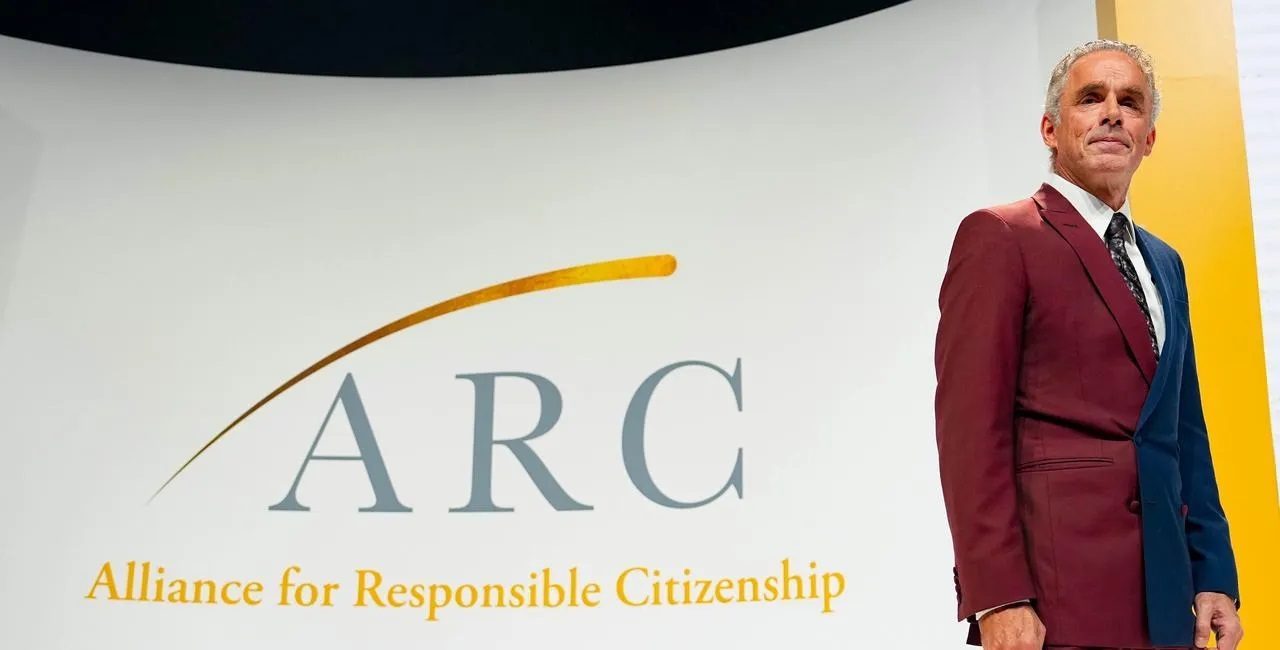


Note: I was invited invited to the ARC Conference (Alliance for Responsible Citizenship Conference). The conference, set to be held in June 2026, aims to unite conservative voices, with Jordan Peterson, Douglas Murray, Vivek Ramaswamy and several others on the advisory board. As one of the first Hindus to be invited to such a conference, I was looking forward to attending it. However, I decided to decline the invitation. Following is a reproduction of my response to the organisers.
Dear organisers,
At the very outset, I wish to express my gratitude for the invitation. I am acutely aware that at this esteemed gathering, it is rare for Hindu conservatives to be welcomed. Therefore, it would ordinarily be considered a privilege to be among the first Hindus to engage in a broader discussion about the threats faced by my community, common enemies, and a loose coalition to combat civilisational adversaries. I would also like to thank my Jewish friend who recommended my name. He believed (perhaps, still does) that a conservative alliance would be just as incomplete without Hindus as it would be without Jews, since both communities face persecution and religiously motivated hostility.
When my Jewish friend and I had a conversation about ARC (The Alliance for Responsible Citizenship) and him recommending my name for an invite, I was somewhat sceptical. A conservative conference in the US, without a doubt, revolves around Christian revival. I, of course, will not criticise that. Every community has the absolute right to work towards its own cultural, religious and civilizational revival. As a Hindu, I was unsure what my role would be at such a conference.
My friend reminded me that I have long maintained that Hindus are alone in their civilizational battle. I have long advocated that a community victory of the Hindus is for us alone to cherish, and a loss, a defeat, is for us to bear the burden of. I had also brought up Jordan Peterson’s shameful denigration of the Hindu mother Goddess (Maa Kali) and Douglas Murray’s inaccurate defence of the colonisation of India – what could I possibly have in common with these folks, I had asked. My friend, the eternal optimist, said that the world is no longer a place where persecuted communities can survive without allies and possibly, the ARC Conference could be a great opportunity to find allies against common threats and enemies.
I have, in fact, also believed that the best way forward would be reaching a common minimum program of sorts, where, despite our theological differences, Hindus, Christians, and Jews work towards tackling common civilizational threats. What that alliance would look like, however, always eluded me, because the theological differences between Hindus and Christians are insurmountable.
When Mr. Ram Madhav spoke at the National Conservatism Conference in July 2024, he went in solidarity. In the Christian conservative fight against the Global Left, Madhav said a billion Indians would be their brothers in arms. “We can be at the forefront”, he had said. Despite the olive branch, he was derided, mocked, humiliated and abused for his Hindu faith by Christian conservatives on X.
I knew that if I had attended the ARC Conference, I would have been met with similar derision. But that hardly bothers me. Online hate is something every non-Left commentator is used to – regardless of where they come from. Despite these realities, I thought the ARC Conference could add value for my community because mostly, the racist attacks against Ram Madhav came from what one could dismiss as fringe quarters – random social media accounts who, I thought, had no power to impact policy or serious engagement.
That the racist social media chatter did not affect policy or rules of engagement got slightly reinforced when those like Elon Musk, David Sachs and others defended Sriram Krishnan after MAGA enthusiasts unleashed a barrage of racist abuse against him after Donald Trump picked him as the Senior White House Policy Advisor on Artificial Intelligence (AI).
It was then that I thought maybe I was being too much of a pessimist. Perhaps a common, limited understanding could be reached, and my community could benefit from such an alliance. Even in the face of increasing racist attacks and comments, I believed that this conference could allow me to address the bias.
That pushback or even some sign of disapproval during the Sriram Krishnan saga was completely absent during the recent flurry of anti-India and anti-Hindu comments after Donald Trump’s policies sparked a debate on H1B visas.
In fact, the intellectual leadership of the MAGA movement or the anti-woke movement seemed either in agreement through their silence or too scared to voice their dissent.
As someone who has spent the better part of her life advocating for Hindu rights and documenting religiously motivated hate crimes against Hindus, I could not, however, overlook the Hinduphobic comments made not by fringe white supremacists but by the Vice President of the United States of America himself.
When JD Vance told USA that he hopes his wife, Usha Vance, would find Christianity, he essentially declared to the one billion-plus Hindus that their faith was not good enough. He sanctified the Hinduphobic comments made by his supporters, calling Hinduism a “false religion” and our Gods and Goddesses, Demons.
Now, I cannot authoritatively speak for what JD Vance truly believes, but if it was not a statement of conviction, it was evident that, at the very least, he was too scared to offend fringe sentiments. While being married to an ethnic Indian and a practising Hindu, Vance not only refrained from wishing Hindus on Diwali (clearly a conscious decision) but also hoped, publicly so, that his wife would convert to Christianity. If nothing else, the statement of JD Vance proves that in the USA, the racist fringe is the mainstream now, dictating how leaders behave and what they espouse.
One must contrast this with India and the Indian leadership, viewed as Hindu nationalists. In India, a large section of the Hindu population believes that India should be a Hindu nation. That, however, does not stop the leadership from reaching out to the Christian community or the Muslim community, because the current leadership and its ideological foundation – the RSS – believes that anyone born on this land needs to be viewed as a brother, regardless of theological differences. In fact, the USCIRF often screeches, relying on inauthentic data, to claim that Christians are being persecuted in India. The truth is quite the contrary. There are hundreds of cases and thousands of Hindus who Christians persecuted in their own land. These cases are meticulously documented on Hinduphobia Tracker – a database of Hindu persecution. Despite this, the government, viewed as Hindu nationalist and tarnished by elements in the USA, makes an earnest attempt to assuage the fears of minorities.
I am, in fact, one of those Hindus who believe India is the civilizational, cultural and religious land of the Hindus. And since I say this, I must also place on record that as someone who believes India is a Hindu land, I am the last person to take umbrage at Christians thinking of the USA as a Christian country. However, for Hindus, India being a Hindu land does not mean the expulsion of Christians but the preservation of Hindu rights, religious and cultural. India is the only land to have accepted persecuted communities from across the world – from the Jews to Parsis, Christians and even Muslims, not once expecting them to abandon their faith. The pushback against Christians is limited to infringement on Hindu religious rights. In other words, Hindus oppose Christians only when they attempt to, by force, alienate Hindus from their faith and impose their religious beliefs on them. The pushback is not inherently due to theological differences; fundamentally, Hindus are perhaps the only people who accept differences, theological or otherwise, as part of coexistence.
While Hindus have their fundamentals clear, it is the Christians who now need to define what their Christian nation would look like. That is not for me to weigh in on. But for now, it is apparent that the fringe racists dictate the leadership in the USA, and they will even throw their own family under the bus if it means that the fundamentalists would be assuaged.
The sceptical hope of a broader coalition between the global non-Left, which was hanging on by a thread after Elon Musk and others had condemned racist attacks against Sriram Krishnan, his ethnic and religious identity, is now all but gone.
When the leadership itself appears in sync or scared, attending such an event would reap no benefit.
The obvious defence to what has recently transpired would be that it is natural for JD Vance, a Catholic, to hope that his wife embraces Christianity because Christians believe it to be the only path to salvation. And I hold no brief for Usha Vance. I, frankly, don’t particularly care what Usha Vance decides to do. But what the Vice President of the United States says about the faith of a billion people matters because it shapes how the Western World, or at least a large part of it, interacts with the followers of that faith.
When JD Vance said that his wife is not very religious, contradicting Usha Vance’s earlier statement that she was a religious Hindu, he essentially negated the faith in its entirety. He basically said that Usha Vance was “faithless”, not because she was an atheist (by her own admission, she comes from a religious family), but because she did not follow Catholicism. When he admitted that his children were being raised Catholic, only months after claiming that their kids follow both religions, with Hindu rituals being a part of their life, he delegitimises the faith itself – presumably because he wanted to pander to the fundamentalists, his core vote bank.
Here, I would like to reiterate: I don’t care what faith Usha Vance or their children follow. Their marital arrangement is not a matter of global concern. What is of international concern, however, is what his statements mean for Hindus and how they would translate into their dehumanisation and the delegitimisation of their faith.
Vance’s statement wasn’t just about his wife. It implied the inferiority of the Hindu faith and furthered cultural erasure and stereotyping.
It is a byproduct of racial and religious hate that Hindus, who neither proselytise nor impose their religious practices on others, apart from being productive members of any society, are expected to give up their religious practices and chip away at their cultural identity to “assimilate”. The pressure to give up their religious identity is such that most Hindus in the US hardly call themselves religious. They claim they are “spiritual” or pull a Vivek Ramaswamy to claim that Christian values and Hindu values are synonymous. Essentially, to escape discrimination and humiliation, even Hindus who have political power must capitulate to Christian supremacists by giving up their exclusively Hindu identity to claim they are, if not Christian, then Christian adjacent.
Of course, I blame such Hindus just as much as I hold Christian fundamentalists responsible. The Hindus’ need to assimilate and find crumbs of acceptance from White supremacists contributes just as much to the dehumanisation of fellow Hindus. But if the Vice President of the United States of America cannot stand up and defend the faith of his wife, I have very little hope from other Christian conservatives, even for a limited alliance to fight common enemies.
In all honesty, my only interest is the preservation and protection of Hindus, and any global non-Left alliance is pointless if that objective isn’t furthered. I have little regard for validation – from the Left or from the Christian conservatives. I do believe a Global Alliance against the Left and possibly Islamism would be beneficial to my community; however, any such alliance must be founded on equal footing. I never was, nor will I ever be, a votary of chipping away at my own religious and cultural identity for the purpose of forging such an alliance, nor would I ever capitulate to those who deem themselves superior.
This letter would undoubtedly raise debate among my followers and readers. Should I have attended the ARC Conference to say this in person? Is it not better to be there than be derided in absentia? Would my letter change anything? And if it would not, why not simply attend and have a shot, even if it is a slim one, at convincing other conservatives that Hindus are meant to be allies.
I fear, now more than ever, that a Global Non-Left Alliance may not be forged. Theologically, Christians would always be inclined to alienate Hindus from their faith. In India, there are thousands of cases of Christians persecuting Hindus, forcing them, and threatening them to convert to Christianity. Politically, the ‘right’ would always be local in nature, unlike the Left, which finds global consonance. Hindus would want to focus on the religious, cultural, and traditional preservation of their people’s faith and the land of their ancestors. In contrast, Christians, in addition to working towards cultural and religious revival, would also be theologically invested in eradicating Hindus and their faith.
I am sure the ARC Conference or other Conservative Conferences would find several other Hindus who would be more than willing to capitulate, to blame Hindus for their own persecution and humiliation. I refuse to be one of them.
I believe the need is for Christian conservatives to get their house in order because, currently, their message to the world is clear – Christian conservatism is either subservient or indistinguishable from fundamentalism rooted in pristine theology and xenophobia, which hates Hindu existence itself.
I do hope there comes a time in the future when Christian conservatives realise that while they poured their energies into converting the “heathens”, their land and their identity were being stolen by common enemies – forces inimical to civilizational survival. I do hope that someday, forging a common alliance would not necessarily entail Hindus chipping away at their own cultural and religious identity. Until then, I would be uncomfortable attending this conference, while being deeply appreciative of the invitation extended to me.
I am, of course, not placing the blame for JD Vance’s Hinduphobia on the ARC Conference. But in the absence of any condemnation from the conservatives and widespread agreement in contrast, I believe a Christian Conservative gathering is not one I feel the need to attend.


